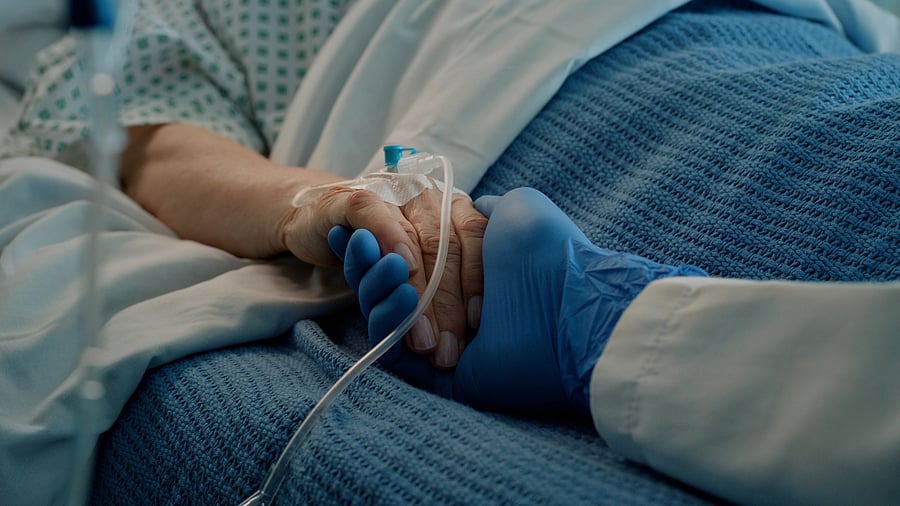
Representative Image of a patient.
Credit: iStock
Bengaluru: A group of interventionists has organised an awareness programme at Victoria Hospital to promote early intervention and timely treatment for sepsis.
Sepsis, a life-threatening condition, is among the leading causes of ICU deaths linked to heart attacks and other critical illnesses, the World Health Organisation (WHO) states.
Intensive Care Unit (ICU) specialists are pushing for greater awareness, early use of antibiotics, and swift source control to improve survival rates.
Intensivist Dr Pooja Murthy told DH: "If sepsis goes undiagnosed because of a pus pocket, it has to be drained within 12 hours. The longer it takes, the lower the survival rate. Early identification remains the key."
Persons with diabetes, especially the uncontrolled type, the elderly, infants, those with suppressed immunity, and people with chronic illnesses are most vulnerable to sepsis.
"Wounds on the feet of diabetics do not heal and it is better to be treated as it would lead to infection causing sepsis,” said Dr Rajavardhan, intensivist.
Causes of sepsis
Pneumonia, urinary tract infections, or untreated skin wounds can cause sepsis when ignored. Secondary infections often occur in hospitals due to frequent visits by extended families.
“It is important for the well-being of patients to limit visitations,” added Dr Rajavardhan.
Victoria Hospital sees about 250 ICU admissions every month, of which 60%–70% are cases of sepsis, officials said.
High cost a deterrent
Treatment for sepsis poses a heavy financial burden as it requires ICU care.
“The treatment is not very affordable as ventilator facilities are required in serious cases and the treatment has to be done in the ICU,” said Dr Divya Dinakar, intensivist.
Untreated sepsis is extremely fatal, leading to multiple organ failure and death.
Dr Natesh, interventionist, said, “When an organ is infected, delay leads to infection entering the blood stream. It leads to infection in the blood and multiple organs and death.”
Doctors also warned against indiscriminate use of over-the-counter antibiotics, which build resistance and force the use of stronger medications in higher dosages.
Symptoms of sepsis: High fever, rapid heartbeat, low blood pressure, confusion or disorientation.